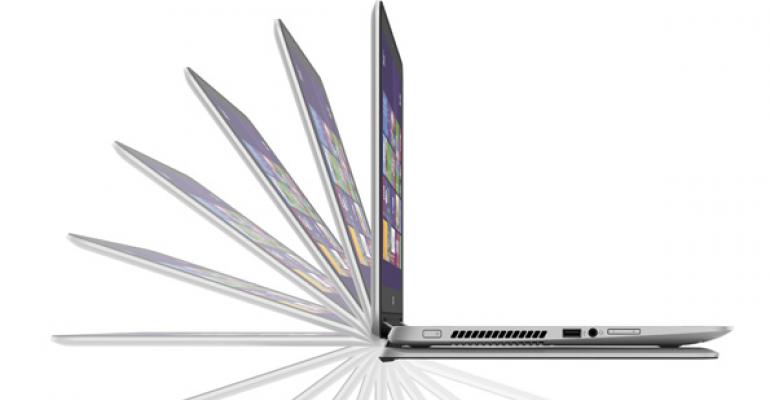They flip, fold, and transform like robots in a science fiction movie: Yes, the 2014 crop of PCs is arriving this week courtesy of the Computex trade show in Taiwan. And it looks like PC makers are finally on board with the multi-function vision that Microsoft first championed two years ago with Windows 8 and Surface.
There's just one problem: Not all of these designs stick solely with Microsoft's platforms. Some use Google Android or Chrome OS, for example. And some—perhaps taking the transforming theme a little too literally—even allow users to switch between Windows and Android.
To give Microsoft some credit, it has quickly responded to these trends by evolving both Windows and the licensing terms that determine how much PC makers pay for Windows.
The OS itself has improved dramatically since the original Windows 8, and with the recently released Update 1 for Windows 8.1, it can run effectively on low-end and low-cost devices with just 1 GB of RAM and 16 GB of storage.
As compelling for PC makers, Windows is now cheaper than before and, in some cases, even free: Any hardware maker that builds a device that costs less than $250 and has a screen smaller than 9 inches can obtain Windows—or, for handsets, Windows Phone—for "0 dollars," as Microsoft puts it.
Both of these changes will help the firm counter low-end Android tablets and Chrome OS devices.
"The end result is that more people—across consumer and commercial—will have access to an even broader selection of new devices with all the awesomeness that Windows 8.1 provides, and get Office too, all at a really affordable price," a Microsoft statement notes. "Additionally, as reach expands, the opportunity for developers and their apps also increases."
But Microsoft still has to deal with its PC maker partners, which are continuing to experiment with non-Windows offerings.
HP this week announced updated Chromebooks—laptops that run Chrome OS—and a Slatebook laptop that runs Android. And longtime Windows stalwart Dell now sells Android tablets and even an education-oriented Chromebook in addition to transforming Windows PCs.
ASUS this week announced interesting—even crazy—new Transformer Book PCs that, like Microsoft Surface and other so-called "2-in-1" PCs, switch between tablet and laptop form factors. But while the Transformer Book V takes this to a strange extreme, offering five form factors, essentially: a Windows laptop, a Windows tablet, an Android phone, and Android tablet, and an Android laptop. (The firm also offers a less out-there version called the Transformer Book T300 that is all Windows.)
With friends like these, Microsoft has its work cut out for it. But aiding matters, in a strange way, is the fact that Intel's chipsets, which are dominant on PCs, have barely made any mark at all in tablets and smartphones. So these hybrid PCs which combine Windows with other operating systems are still more science experiment than proven product.
And Intel's next-generation Core processor chipset, codenamed "Broadwell," has been delayed. This means that PCs and devices based on these chips will not arrive in time for the back to school season. Intel hopes Broadwell will hit in time for the holidays, however.
The lower-end Atom chipset—the current generation is called "Bay Trail"—has gotten off to a slow start, but it offers improved performance and 64-bit capabilities. And its successors, "Merrifield" and "Moorefield," will offer even better performance and efficiency, and be suitable for both smartphones and tablets, those two markets where Intel has lagged.
Beyond PCs, tablets and smart phones, the industry is also looking at wearable computing, with Samsung already in market, Acer just announcing its first wearables and other firms—most notably Apple—expected to enter the market soon as well. Microsoft is rumored to working on wearable technology, but unlike in the past, it won't see the broad partner ecosystem that might be needed to push such devices over the top. Today, most device makers—including wearable device makers—are looking to Android instead.





